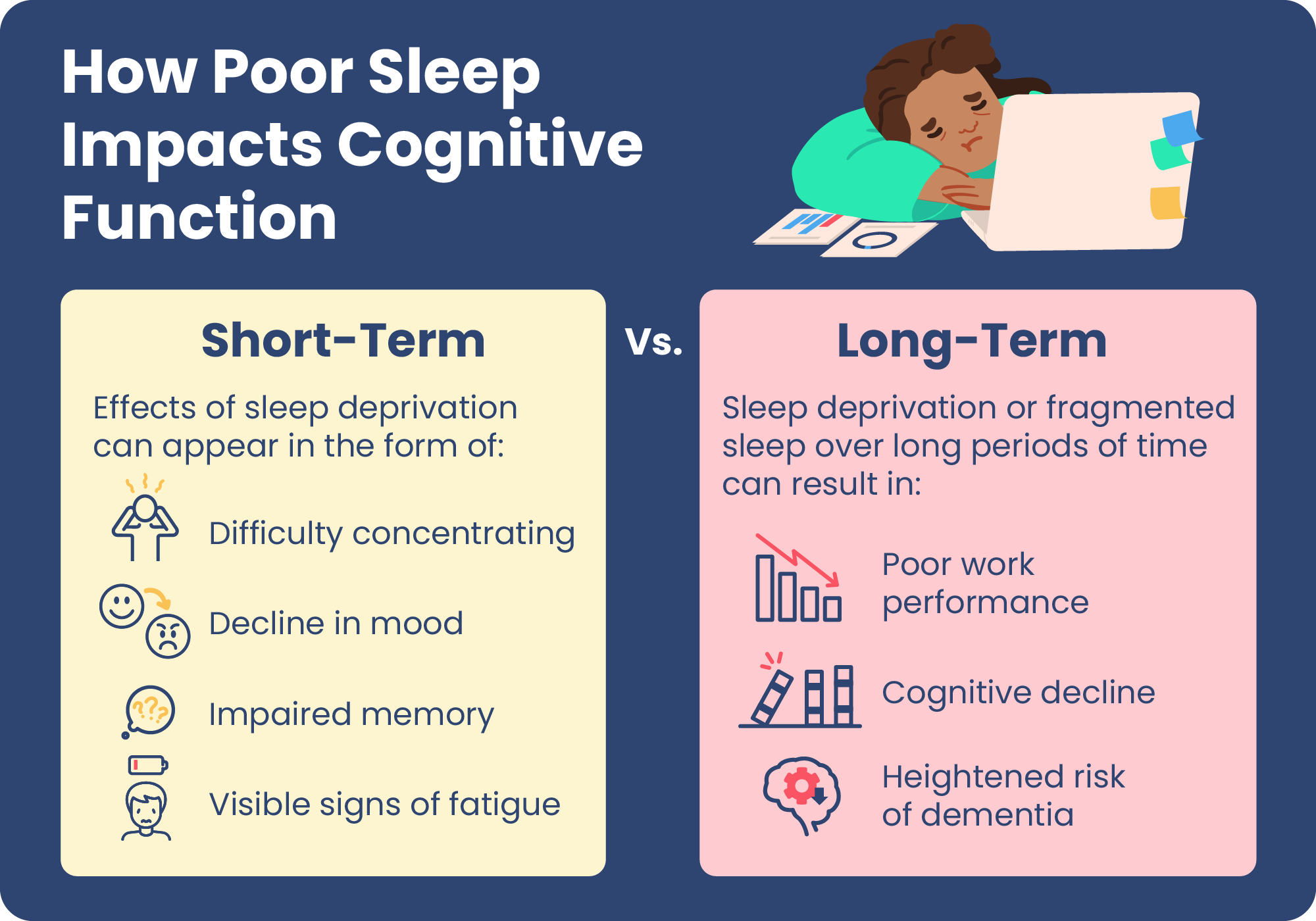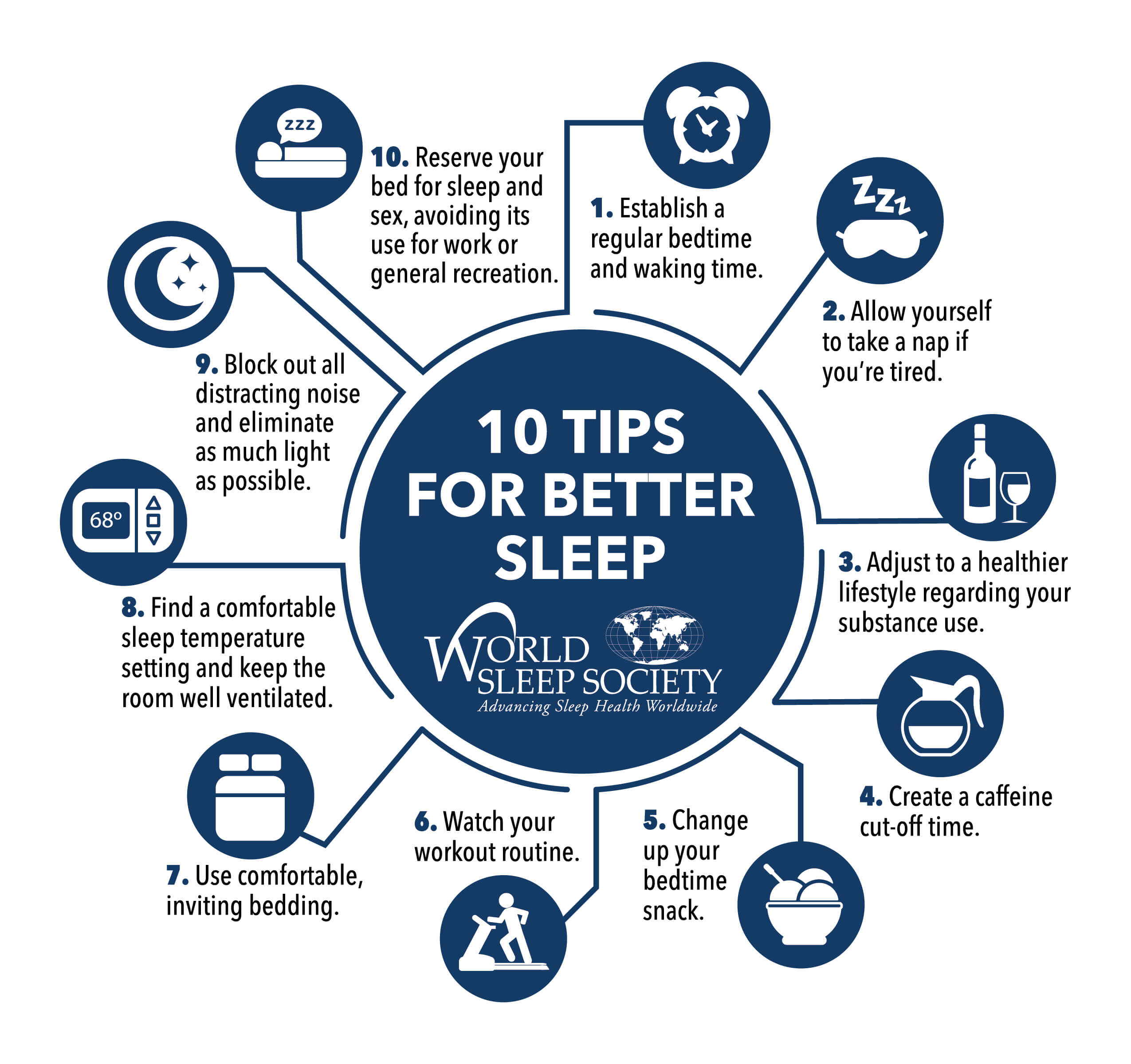Mastering Sleep: Strategies to Boost Health
Sleep is a vital aspect of human health, yet it is often neglected in today's fast-paced world. Whether due to busy schedules, stress, or poor lifestyle choices, many people suffer from insufficient or poor-quality sleep. However, the importance of sleep extends far beyond simply feeling rested—sleep plays a key role in nearly every physiological process, from brain function and immune defense to heart health and emotional well-being.
The Role of Sleep in Health
Sleep is essential for maintaining both mental and physical health. During sleep, the body undergoes various restorative processes that affect everything from cognitive function to immune response. The two main types of sleep—non-rapid eye movement (NREM) sleep and rapid eye movement (REM) sleep—work together to support the body's overall function.
Cognitive Benefits of Sleep
One of the primary functions of sleep is to restore cognitive abilities. During sleep, the brain consolidates memories, processes information, and clears out harmful toxins that accumulate throughout the day. This allows for improved mental clarity and decision-making.
- Memory consolidation: NREM sleep, particularly the deeper stages, is critical for storing new information and enhancing memory recall. REM sleep, on the other hand, plays a role in processing emotions and complex problem-solving.
- Mental focus: Consistent, restful sleep improves attention span, creativity, and cognitive flexibility. This enables quicker thinking and better judgment in everyday tasks.
Image: Cognitive benefits of Sleep
Physical Health Benefits of Sleep
Sleep is equally important for physical recovery and bodily function. During deep sleep, the body releases hormones that help with tissue repair and muscle growth, ensuring that the body stays strong and resilient.
- Cardiovascular health: Sleep helps regulate blood pressure and reduce inflammation, lowering the risk of heart disease, heart attacks, and strokes.
- Weight control and metabolism: Inadequate sleep can lead to hormonal imbalances that increase appetite and reduce the body’s ability to regulate blood sugar, contributing to obesity and diabetes.
- Immune function: Sleep allows the immune system to produce proteins like cytokines, which help the body fight infections and recover from illness.
Emotional Well-being and Sleep
Sleep is crucial for regulating emotions. Insufficient sleep is linked to mood disorders such as anxiety and depression. When well-rested, people are better equipped to manage stress and maintain emotional balance.
The Health Risks of Sleep Deprivation and Oversleeping
While the benefits of sufficient sleep are clear, the dangers of poor sleep are equally significant. Both sleep deprivation and oversleeping can have detrimental effects on health.
Consequences of Sleep Deprivation
Chronic sleep deprivation, defined as consistently getting fewer than 7 hours of sleep per night, can lead to several serious health issues:
- Heart disease: Sleep deprivation has been strongly associated with cardiovascular conditions such as high blood pressure, heart attacks, and strokes due to the prolonged strain on the heart.
- Diabetes: Sleep loss negatively impacts insulin sensitivity, increasing the risk of developing type 2 diabetes.
- Mental health disorders: Lack of sleep can either cause or exacerbate conditions like depression, anxiety, and bipolar disorder.
- Cognitive decline: Poor sleep has been linked to neurodegenerative diseases such as Alzheimer’s, as the brain struggles to clear out harmful waste products during inadequate sleep.
The Risks of Oversleeping
Oversleeping—defined as regularly sleeping more than 9 hours per night—can also be harmful to health. While this issue receives less attention, it poses its own set of risks:
- Obesity: Studies have found a link between oversleeping and a higher risk of weight gain and obesity, likely due to reduced physical activity and metabolic changes.
- Heart disease: Excessive sleep may contribute to systemic inflammation, which increases the likelihood of developing cardiovascular diseases.
- Stroke: Oversleeping has been associated with a higher risk of stroke, particularly in older adults, potentially due to its effect on vascular health.
- Mood disorder: People who sleep excessively are more likely to suffer from depression, often resulting in a cycle of low energy and increased sleep.
Medications and Treatments for Sleep Improvement
For individuals who struggle with chronic insomnia or other sleep disorders, various treatments and medications are available to promote better sleep. However, it is essential to use these interventions under medical supervision to avoid potential side effects or dependency.
Prescription Medications
- Benzodiazepines: These sedatives can be effective for short-term use in treating insomnia but carry a risk of dependency if used long-term.
- Non-benzodiazepine sedatives: Medications like zolpidem (Ambien) and eszopiclone (Lunesta) are often prescribed for sleep disorders. These drugs have fewer side effects than traditional benzodiazepines.
- Antidepressants: In cases where insomnia is linked to depression, some antidepressants such as trazodone are used to improve sleep quality.
- Melatonin agonists: Drugs like ramelteon mimic melatonin, the body’s sleep-regulating hormone, and are often prescribed for those with chronic insomnia.
Over-the-Counter Remedies
- Melatonin supplements: Many people use melatonin supplements to regulate sleep cycles, particularly when dealing with jet lag or shift work. While helpful in the short term, they are not recommended for ongoing insomnia treatment.
- Antihistamines: Over-the-counter medications such as diphenhydramine (found in Benadryl) are commonly used for their sedative effects. However, they can cause daytime drowsiness and cognitive impairment.
- Herbal treatments: Natural remedies like valerian root, chamomile, and lavender are believed to promote relaxation and improve sleep, though more research is needed on their effectiveness.
Cognitive Behavioral Therapy for Insomnia (CBT-I)
One of the most effective non-drug treatments for chronic insomnia is Cognitive Behavioral Therapy for Insomnia (CBT-I). This approach helps individuals change negative thoughts and behaviors that disrupt sleep. CBT-I has been shown to provide long-term improvements in sleep quality without the side effects associated with medications.
Practical Tips for Improving Sleep Habits
Improving sleep habits can make a significant difference in both the quantity and quality of sleep. Simple lifestyle changes and attention to sleep hygiene—the practices that support good sleep—can go a long way in ensuring restful nights.
Image: Tips to Improve SleepMaintain a Consistent Sleep Schedule
Consistency is crucial for optimizing sleep. Going to bed and waking up at the same time every day, including weekends, helps regulate the body’s internal clock. This regularity makes it easier to fall asleep at night and wake up feeling refreshed in the morning.
Create an Optimal Sleep Environment
The sleep environment has a profound impact on sleep quality. Simple adjustments can make the bedroom more conducive to restful sleep.
- Dark and quiet: Blocking out light and reducing noise can create a peaceful environment for sleep. Blackout curtains and white noise machines are effective tools.
- Comfortable bedding: High-quality pillows and mattresses that support your body can prevent discomfort and promote better sleep.
- Cool room temperature: Keeping the bedroom cool—ideally between 60-67°F (15-20°C)—can improve sleep by helping the body reach the lower core temperature necessary for sleep onset.
Relaxation Techniques
Establishing a calming bedtime routine can help signal to the body that it’s time to wind down and prepare for sleep.
- Mindfulness meditation: Practicing mindfulness and meditation has been shown to reduce sleep disturbances and improve overall sleep quality.
- Deep breathing exercises: Simple deep breathing techniques, such as the 4-7-8 method (inhale for 4 seconds, hold for 7 seconds, exhale for 8 seconds), can promote relaxation and ease the body into sleep.
Limit Stimulants and Screen Time
Reducing stimulant intake and exposure to blue light in the evening can also improve sleep.
- Avoid caffeine and alcohol: Both substances can disrupt sleep cycles, with caffeine blocking the chemicals in the brain that promote sleep and alcohol interfering with REM sleep later in the night.
- Reduce screen time: The blue light emitted from electronic devices suppresses melatonin production, making it harder to fall asleep. Limiting screen use at least an hour before bedtime can help.
Understanding Circadian Rhythms and Their Impact on Sleep
The body’s circadian rhythm is a natural internal clock that regulates the sleep-wake cycle. Controlled by a part of the brain known as the suprachiasmatic nucleus (SCN), the circadian rhythm responds primarily to light and darkness. This internal clock plays a crucial role in determining when we feel alert and when we feel sleepy.
Modern Disruptions to Circadian Rhythms
The demands of modern life often interfere with natural circadian rhythms. The widespread use of artificial lighting, the prevalence of late-night work or socializing, and constant screen exposure can all lead to circadian misalignment. This misalignment often results in poor sleep quality and long-term health problems, including increased stress, obesity, and sleep disorders.
Realigning Your Circadian Rhythm
By making conscious lifestyle changes, you can help realign your circadian rhythm for better sleep:
- Expose yourself to natural light: Getting outside during the day, particularly in the morning, helps reinforce your circadian rhythm and signals to the brain that it’s time to be awake.
- Limit artificial light at night: Reducing light exposure, especially from screens and bright indoor lighting, in the evening allows your body to wind down and prepare for sleep.
Final Thoughts on Sleep and Well-being
Sleep is often taken for granted, yet its importance cannot be overstated. From maintaining cognitive sharpness and emotional stability to protecting heart health and preventing chronic diseases, sleep plays a crucial role in our daily functioning. Poor sleep, whether from deprivation or oversleeping, poses serious risks that should not be ignored. Fortunately, by making simple lifestyle changes—such as creating a sleep-friendly environment, adhering to a consistent schedule, and practicing relaxation techniques—many sleep issues can be managed or even resolved.
Furthermore, recognizing the significance of the circadian rhythm in regulating sleep-wake patterns is essential for maintaining a balanced life. Our modern environment may challenge these natural cycles, but with the right adjustments, we can restore harmony and enjoy the profound benefits that come with quality sleep.
In the end, sleep is not just a nightly routine; it is a cornerstone of health, influencing how we think, feel, and perform each day. Prioritizing sleep can lead to better health outcomes, more energy, improved mood, and a sharper mind—making it one of the most important investments we can make in our overall well-being.



:max_bytes(150000):strip_icc()/effects-of-sleeping-too-much-4580614-5c5dbe0646e0fb0001ca86e4.png)


Very useful article
ReplyDelete